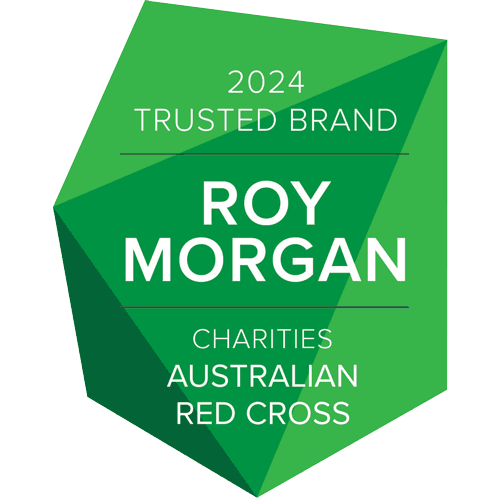How businesses can help Pacific communities recover from disaster
When disaster strikes, Vanuatu businesses can provide, store and distribute relief supplies through a single procurement system.
When Tropical Cyclone Pam hit Vanuatu in 2015, it was one of the worst disasters to ever hit the Pacific region. The Category 5 Cyclone left 75,000 people in need of emergency shelter.
One year later Cyclone Winston slammed into Fiji. Its 225mph winds demolished structures all across the main island. Another Category 5 cyclone, Winston left 44 people dead and was the strongest on record to make landfall anywhere in the world.
In both cases, recovery operations were immense, with many people spending months in temporary emergency shelters.
Red Cross raised millions in donations that helped tens of thousands of people recover but, as with all disasters of this magnitude, pre-positioned stocks were insufficient for the scale of the demand; it became a race against time to find, purchase, transport and store extra relief supplies.
In an effort to combat these issues, Australian Red Cross proposed the Pacific Local Supplier Engagement Project. The project which received funding from DFAT's Humanitarian Challenge initiative aims to engage local business in providing relief items.
In doing so, the project will not only enable faster procurement and distribution, but will also provide a vital boost to local economies that often decline in times of disaster. "Disaster, when it strikes, can affect every part of daily life," says Vanuatu Red Cross CEO, Jacqueline de Gailland. "Damaged houses require tools and materials and water systems need new pipes and plumbing. Then there are pots and pans, mattresses and blankets and many more. The better we can rely on local systems, the better and faster we can prepare for and respond to disasters."
The project is part of a wider strategy of 'localising aid' which aims to increase Pacific nations' self-reliance in disaster planning, management and response.
Red Cross to present to Vanuatu business sector
On Wednesday 14 June, Australian Red Cross will present the project to local businesses and other stakeholders in Port Villa, Vanuatu. This will include a demonstration of a newly-created digital platform that will serve as the procurement system for buying, storing and disseminating the relief items in times of disaster.
The project, which has garnered the full support of the Vanuatu Chamber of Commerce and Industry, is being piloted in Vanuatu and will be rolled out across other Pacific countries in 2018-2019
"We hope that we can make it into something real that can be of mutual benefit to business and humanitarian agencies, and build resilience and economic strength of the country as a whole" says Jacqueline.
More about our international aid work
[****Image here****]
Local businesses can provide families with relief supplies after major disasters like Cyclone Winston in Fiji. Photo: Fiji Red Cross
Local businesses can provide families with relief supplies after major disasters like Cyclone Winston in Fiji. Photo: Fiji Red Cross
"Disaster, when it strikes, can affect every part of daily life. Damaged houses require tools and materials and water systems need new pipes and plumbing. Then there are pots and pans, mattresses and blankets and many more. The better we can rely on local systems, the better and faster we can prepare for and respond to disasters."
When Tropical Cyclone Pam hit Vanuatu in 2015, it was one of the worst disasters to ever hit the Pacific region. The Category 5 Cyclone left 75,000 people in need of emergency shelter.
One year later Cyclone Winston slammed into Fiji. Its 225mph winds demolished structures all across the main island. Another Category 5 cyclone, Winston left 44 people dead and was the strongest on record to make landfall anywhere in the world.
In both cases, recovery operations were immense, with many people spending months in temporary emergency shelters. Red Cross raised millions in donations that helped tens of thousands of people recover but, as with all disasters of this magnitude, pre-positioned stocks were insufficient for the scale of the demand; it became a race against time to find, purchase, transport and store extra relief supplies.
In an effort to combat these issues, Australian Red Cross proposed the Pacific Local Supplier Engagement Project. The project which received funding from DFAT's Humanitarian Challenge initiative aims to engage local business in providing relief items.
In doing so, the project will not only enable faster procurement and distribution, but will also provide a vital boost to local economies that often decline in times of disaster.
"Disaster, when it strikes, can affect every part of daily life," says Vanuatu Red Cross CEO, Jacqueline de Gailland. "Damaged houses require tools and materials and water systems need new pipes and plumbing. Then there are pots and pans, mattresses and blankets and many more. The better we can rely on local systems, the better and faster we can prepare for and respond to disasters."
The project is part of a wider strategy of 'localising aid' which aims to increase Pacific nations' self-reliance in disaster planning, management and response.
Red Cross to present to Vanuatu business sector
On Wednesday 14 June, Australian Red Cross will present the project to local businesses and other stakeholders in Port Villa, Vanuatu. This will include a demonstration of a newly-created digital platform that will serve as the procurement system for buying, storing and disseminating the relief items in times of disaster.
The project, which has garnered the full support of the Vanuatu Chamber of Commerce and Industry, is being piloted in Vanuatu and will be rolled out across other Pacific countries in 2018-2019
"We hope that we can make it into something real that can be of mutual benefit to business and humanitarian agencies, and build resilience and economic strength of the country as a whole" says Jacqueline.
Charity donations of $2 or more to Australian Red Cross may be tax deductible in Australia. Site protected by Google Invisible reCAPTCHA. © Australian Red Cross 2025. ABN 50 169 561 394
